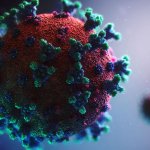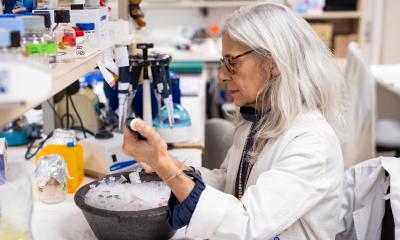© Axel Kock - stock.adobe.com
News • Post-viral condition
'Don't call it long-Covid'? It's not that simple
Dr John Gerrard recently proposed a stop for using the term ‘long-Covid’ for post-viral conditions, suggesting the term ‘post-viral malaise’ instead.
The Chief Health Officer of Queensland argued that this would help curb unnecessary fear and hypervigilance against such conditions. However, Associate Professor Joanne Macdonald, Dr Derek Sarovich, Associate Professor Erin Price from the University of the Sunhine Coast in Queensland caution that this approach might actually do more harm than good for those affected.
They point to the 11.8 million reported Covid-19 cases in Australia as of January 1, 2024. Applying the estimate that at least 3% of these infections lead to functional limitations in everyday life, they say that as many as 355,000 Australians may have, or are, suffering from debilitating, ongoing moderate to severe functional impairment from their past Sars-CoV-2 infections, including brain fog, headaches, sleeping difficulties, joint pain, palpitations, loss of smell, gut issues, shortness of breath, chest pain, anxiety, depression, dizziness, and tiredness.
Instead of debating terminology, we should instead be concentrating on helping people struggling with this debilitating condition
Joanne Macdonald, Derek Sarovich, Erin Price
“Even if we stop calling it ‘long-Covid’, it doesn't change the fact that so many people are affected by a condition that, like an autoimmune disease, needs better recognition and ongoing clinical management,” the experts argue. “Instead of debating terminology, we should instead be concentrating on helping people struggling with this debilitating condition.”
Recommended article

Article • Covid-19
Coronavirus update
Years after the first outbreak and spread of coronavirus Sars-CoV-2, its impact can still be felt in everyday life. Keep up-to-date with the latest research news, political developments, and background information on Covid-19.
However, they add that Dr Gerrard's statement is not without merit: In pointing out that an additional 4% of Queenslanders with flu or other respiratory illnesses similarly suffered from 'post-viral malaise', it brings much-needed recognition for similar long-term impairment from non-Covid viral infections.
Recent studies have shown significant overlap between long-Covid and other chronic illnesses such as myalgic encephalomyelitis/chronic fatigue syndrome (ME/CFS), mast cell activation syndrome (MCAS), and postural orthostatic tachycardia syndrome (POTS). It is estimated that between 30% and 80% of long Covid sufferers have experienced POTS, and many long Covid symptoms mirror those seen in POTS or MCAS. Studies estimate between 0.4%-1% of the Australian population have ME/CFS, and an estimated 0.8% have POTS, meaning an estimated additional 100,000 to 250,000 ME/CFS and 200,000 POTS sufferers could be recognised alongside long-Covid sufferers.
In addition, although a less understood disease, up to 17% of people are thought to have MCAS. “As this chronic, debilitating condition often remains undiagnosed for decades, and has significant symptom overlap with long Covid, we have potentially only just reached the tip of the iceberg with the true ‘post-viral malaise’ burden,” the experts say. Taken together, these conditions create a need for specialised care for about between 455,000 to 850,000 Australians suffering from ongoing debilitating illness triggered by viral infections.
Considering this, the experts ask whether changing the terminology would allow direction of more resources to provide dedicated treatment of these long-term debilitating conditions. This question is posed in light of many clinics dedicated to long Covid rehabilitation now being closed. “These clinics are critical for providing affordable access to the range of respiratory, cardiovascular, neurological, gastrointestinal, and other specialists needed to support patient rehabilitation towards this multi-organ disease,” they urge. “Instead, we need to accelerate expansion of these clinics to all states and territories, and to ensure inclusiveness for all patients suffering from 'post-viral malaise' such as long-Covid, ME/CFS, POTS, and MCAS.”
Addressing longer-term measures, the experts point out the need to invest in preventing Sars-CoV-2 and other viral illnesses beyond vaccination strategies. Improving indoor air quality to reduce bacterial and viral respiratory infections and providing hospital staff and patients with N-95/P2 respirator masks to prevent spread, the burden of infection in vulnerable and sick populations could be signifuicantly reduced, they argue.
Source: University of the Sunshine Coast
02.04.2024





